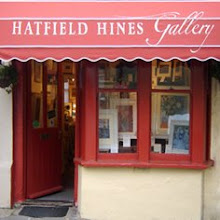
Ship lovers were spoiled for choice at last weekend’s Maritime Festival, held at Great Yarmouth’s Historic South Quay.
A sweep of the dockside took onlookers through centuries of seafaring - from the sedate tall ship, Mercedes, right up to the present day with Caistor Lifeboats’ Bernard Matthews II – Britain’s fastest lifesaving vessel, notching-up a wave-slashing top speed of 40 knots.
 Especially for the Festival, the Mercedes played host to The East Norfolk Militia. The local re-enactment group brought the sights, sounds, smells (and smoke!) of the 1800s vividly to life in a crimson-clad quayside parade which included drills, bayonet charges and live musket practice.
Especially for the Festival, the Mercedes played host to The East Norfolk Militia. The local re-enactment group brought the sights, sounds, smells (and smoke!) of the 1800s vividly to life in a crimson-clad quayside parade which included drills, bayonet charges and live musket practice.The star attraction for naval history buffs was MTB102, the 1937 motor torpedo boat which - as part of the hastily assembled ‘little ships’ fleet - crossed the channel some eight times during ‘Operation Dyndamo’: the
She later carried Winston Churchill and General Eisenhower on their review of the greatest armada in world history: the 5,000-strong fleet assembled in readiness for the epic D-Day landings.
There was also homage paid to Great Yarmouth’s fishing heritage. Landlubbers were welcomed on board the herring steam-drifter Lydia Eva, and treated to views of Horace and Hannah – the town's very last seaworthy shrimper – as she sailed up and down the river. The vista recalled the industry's heyday at the close of the 19th Century, when 100 boats a day put to sea to bring home pink and brown shrimps for holiday-makers’ teas.
_______________________
NB: True History of The Red Herring

Yarmouth is the recognised home of the red herring: fish smoked for a week, to turn a deep, brownish red.
Already well-know by the time of the 16th Century, the red herring was the principal export of Britain's fisheries for over 300 years. The strong-smelling snack - reputedly a great thirst-producer - was often found on the bars of public houses: hence its absorption into the crime fiction genre. The canny criminal, when cornered in his drinking den, would grab a reeking fish on his escape, to literally throw the dogs off the scent - or so the story goes...








No comments:
Post a Comment